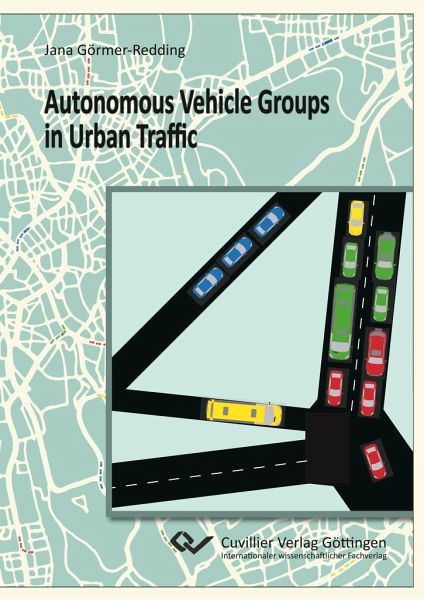
Autonomous Vehicle Groups in Urban Traffic

PAYBACK Punkte
0 °P sammeln!
It is likely that autonomous vehicles will be the future of mobility. To handle the increase in autonomy, traffic coordination methods will become indispensable. Based on this, an investigation into the performance of Autonomous Vehicle Group Formation (AVGF) based on a decentralized model and a simulative evaluation in urban environments is needed. An Autonomous Vehicle Group (AVG) is a set of vehicles used for transporting people or goods, such as a car, truck, or bus, that are located, gathered, or classed together and are characterized by constant change or progress within the traffic syst...
It is likely that autonomous vehicles will be the future of mobility. To handle the increase in autonomy, traffic coordination methods will become indispensable. Based on this, an investigation into the performance of Autonomous Vehicle Group Formation (AVGF) based on a decentralized model and a simulative evaluation in urban environments is needed. An Autonomous Vehicle Group (AVG) is a set of vehicles used for transporting people or goods, such as a car, truck, or bus, that are located, gathered, or classed together and are characterized by constant change or progress within the traffic system. The focus is on decentralized autonomous vehicle grouping, which allows the flexibility of single vehicles to be retained while also enabling the use of group coordination to achieve higher throughput in urban networks, as already witnessed in highway vehicular platoons. A known and practiced concept for urban traffic control at traffic signals is to bundle vehicles passively according to green signal phases; the novelty being active coordination of the vehicles in decentralized groups of interests. Likewise, AVGs make coordinated decisions with and without communication depending on the similarities of their vehicle properties and destinations. AVGs coordinate the motion of traffic, making strategic (i.e., group destination) and tactical (i.e., speed and gaps) group decisions in a street network.













